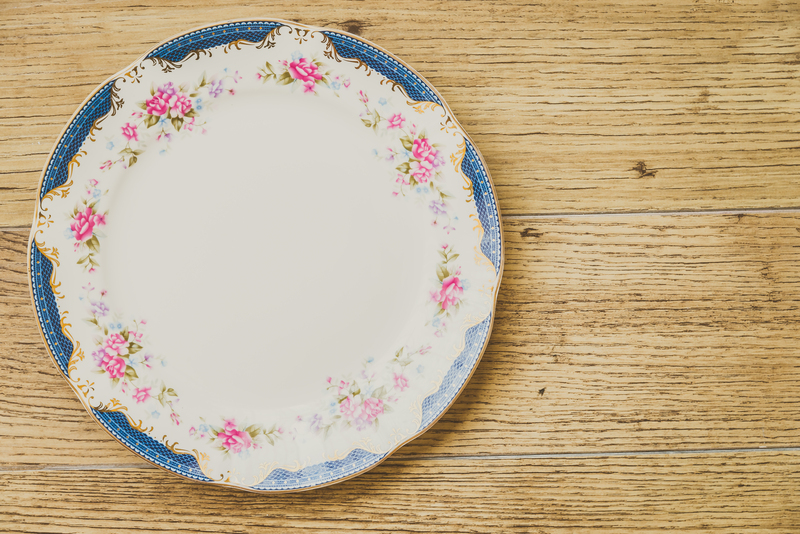Plastic Materials to Avoid for Your Health
Posted on 10/07/2024
In today's fast-paced world, plastic has become an integral part of our daily lives. From food packaging to household items, it is almost impossible to imagine a world without plastic. However, with its convenience and widespread use comes a hidden cost - the potential harm it can have on our health. Over the years, there has been growing concern about the safety of certain plastic materials and their impact on human health. In this article, we will explore some of the commonly used plastic materials that may pose a risk to our health and suggest alternatives for a safer and healthier lifestyle.
Understanding the Risks
Plastic materials are made up of complex chemical compounds that are not found in nature. These chemicals can leach into the food or liquid stored in them, especially when exposed to heat or acidic substances. This can have various harmful effects on our bodies, including disruption of hormone levels, developmental disorders, and even cancer. Here are some of the most common plastic materials to avoid for your health.
1. Bisphenol A (BPA)
BPA is a chemical used in the production of polycarbonate plastics and epoxy resins, commonly found in water bottles, food storage containers, and even baby bottles. Research has shown that BPA can mimic estrogen in the body and may lead to hormonal imbalances. This is particularly concerning for pregnant women and young children as it can interfere with proper development.
2. PVC (Polyvinyl Chloride)
PVC is a type of plastic used in pipes, shower curtains, toys, and other household items. It contains phthalates - chemicals that make the PVC soft and flexible but are known to disrupt the endocrine system and cause reproductive problems.
3. Styrofoam (Polystyrene)
Styrofoam is widely used in takeout containers and disposable cups due to its lightweight and insulating properties. However, it is made from polystyrene, which can leach into the food or drink and has been linked to health issues such as cancer, reproductive disorders, and neurological problems.
4. Polycarbonate (PC)
Polycarbonate is used in the production of various plastic products, including water bottles and food storage containers. It contains BPA, which can leach into the contents and pose a health risk.

Alternatives for a Safer Lifestyle
Fortunately, there are alternatives to these harmful plastic materials that we can incorporate into our daily lives. Here are some suggestions for a healthier and more sustainable lifestyle:
1. Glass or Stainless Steel Containers
Replace plastic food storage containers with glass or stainless steel options. These materials do not contain harmful chemicals and are also reusable and easy to clean.
2. Reusable Water Bottles
Invest in a reusable water bottle made from glass or stainless steel instead of single-use plastic ones. Not only will this reduce your exposure to harmful chemicals but also help in reducing plastic waste.
3. Natural Fibers
Choose natural fiber alternatives such as bamboo, cotton, or hemp over PVC or polyester-based fabrics for household items like shower curtains and rugs.
4. Silicone
Silicone is a safer material that can be used in place of PVC or polystyrene for products such as bakeware and kitchen utensils.

The Pros and Cons
Now that we have discussed the potential risks of certain plastic materials and their alternatives, let's weigh the pros and cons of using them in our daily lives.
Pros:
- Convenience: Plastic materials are lightweight, durable, and easily available, making them convenient for everyday use.
- Cost-effective: Plastic materials are relatively inexpensive compared to their alternatives.
- Versatile: Plastic can be molded into various shapes and sizes to fit different needs.
Cons:
- Health hazards: Certain plastic materials contain chemicals that can have adverse effects on our health.
- Environmental impact: Plastic waste is a major contributor to environmental pollution, especially in oceans and landfills.
- Short lifespan: Most plastic products are designed for single-use and cannot be recycled, leading to a high amount of waste generation.
Takeaways and Conclusion
Avoiding plastic completely may not be feasible in today's world, but being aware of the potential risks and making conscious choices can significantly reduce our exposure to harmful chemicals. Opting for safer alternatives such as glass, stainless steel, or natural fibers is not only better for our health but also for the environment. So next time you reach for that plastic water bottle or takeout container, think about the impact it may have on your health and consider making a switch to a healthier alternative. After all, a little effort towards a safer and greener lifestyle can go a long way in protecting ourselves and the planet we call home.
